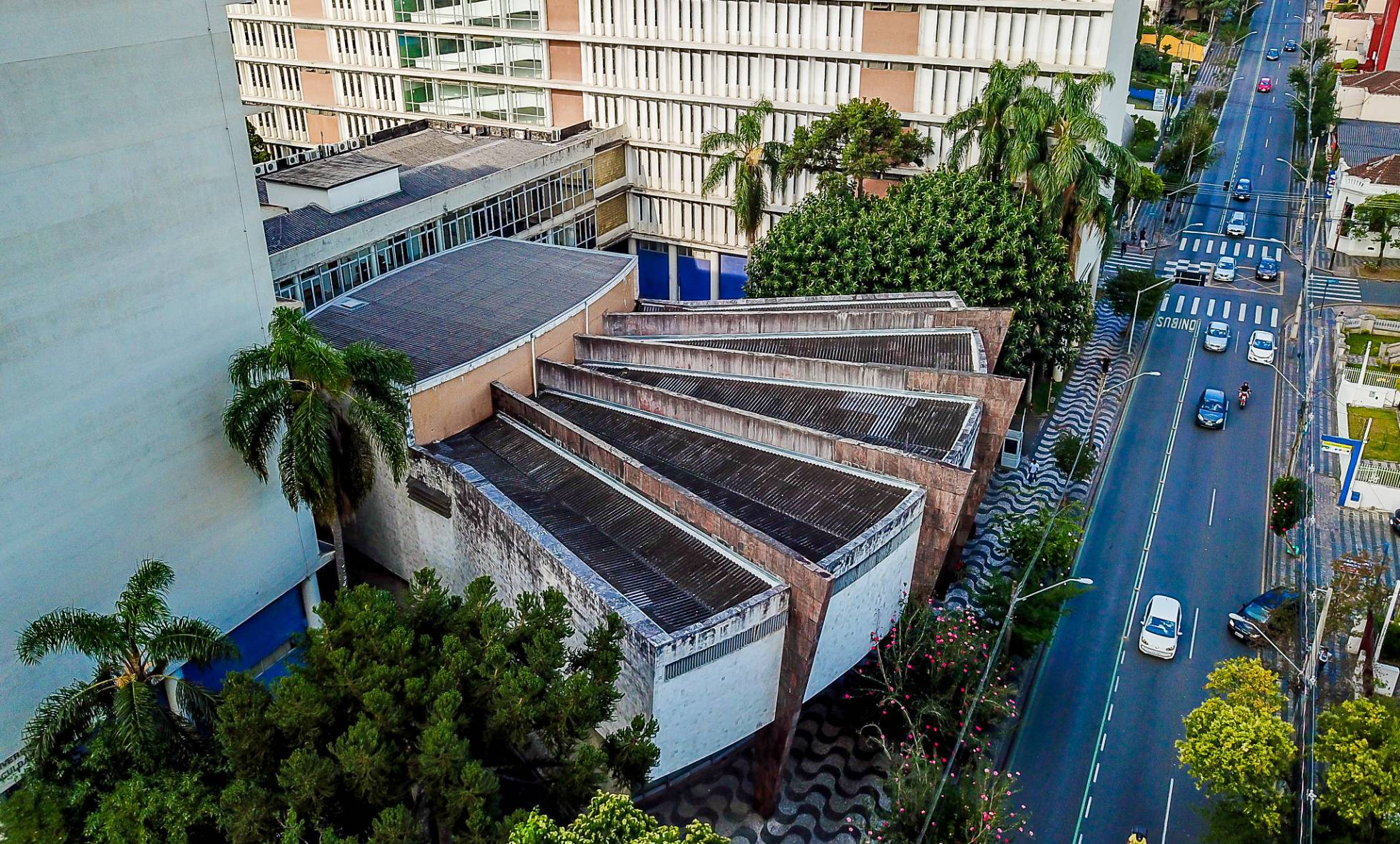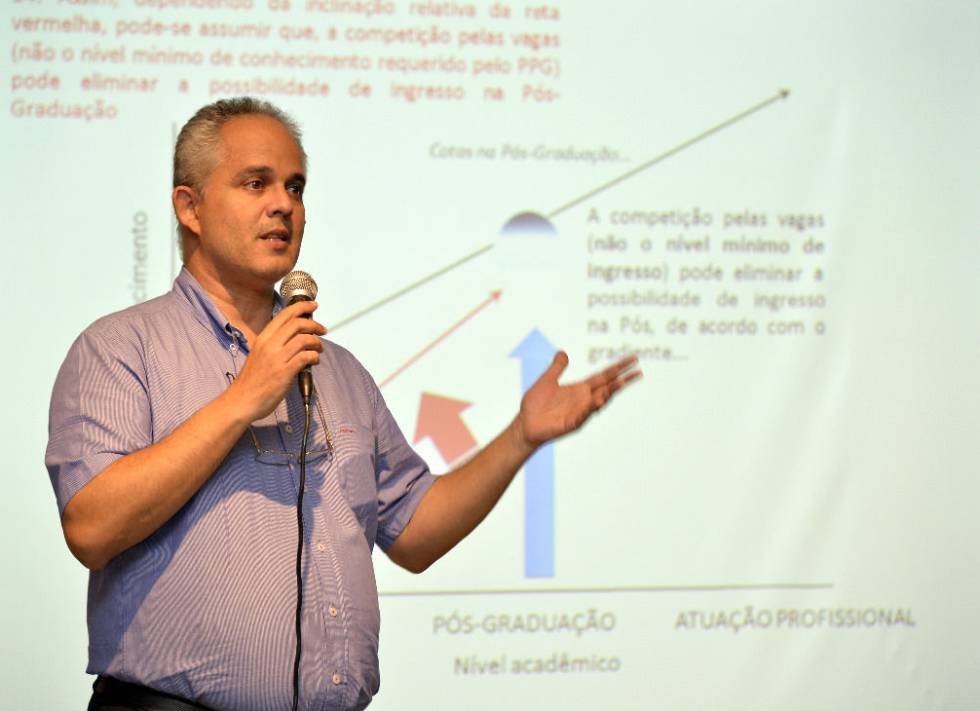The first effects of Bolsonaro's financial asphyxia on the Brazilian sciences


Sao Paulo -5 MAY 2019 - 23:43 CEST
Government blocked research money and universities to suit spending ceiling. Several institutions foresee lack of money for water and light and complain of anticiencia movement
First, the university can not afford water and energy. Then service contracts (such as cleaning and security) will no longer be met. Then the university restaurant will run out of resources. Programs to assist poor students are also under threat. And if the measure is not reviewed, the cut will compromise the activities of the university already in the second half of this year. This is a summary of the first effects of Bolsonaro's financial asphyxiation on education and science in Brazil, reported by several institutions, such as the Federal University of Paraná (UFPR), which blocked 30% of its funding, at 48 million real. The Federal University of Rio de Janeiro (UFRJ), which had a 41% suspension of funds for maintenance, in the amount of 114 million reais, also pointed out the blocking of resources for investments that prevents the development of works and purchase of equipment for laboratories and hospitals. "In five years, the University has been suffering cuts and contingencies without replacement. In corrected amounts, the difference between the budget of 2014 and the budget of 2019 is higher than 200 million reais,"informed the UFRJ .
MORE INFORMATION
The "historical negationism" of the Bolsonaro Government over the military dictatorship
More than 600 European scientists urge the EU to push Bolsonaro to avoid deforestation in Brazil
The Federal University of Minas Gerais (UFMG) also said: "There is no administrative efficiency that exceeds a mountain-sized cut, especially in view of the successive budgetary constraints of recent years," said Sandra Regina Goulart Almeida, in a statement . "The measure may also lead to the discontinuation of contracts with outsourced companies, which will also increase the degrading unemployment rates of the state of Minas Gerais and the country."
When, on March 29, the Federal Government published Decree No. 9,741 , informing the freezing of 29.6 billion reais of federal funds, with the objective of adjusting the accounts to the Fiscal Responsibility Law, and the primary and expenditure ceiling, it was not clear what the practical effects of this measure would be in the area of education and science. With the cuts, the Ministry of Science and Technology (MCTIC) lost 41.9% of resources. Of the approximately 5.079 billion reais forecast for the organ, 2,132 billion reais were blocked. And of the Education budget, of 149 billion Reais, 5.8 billion in non-compulsory expenses were contingent by this decree.
The Ministry of Economy receded and thawed about 3.6 billion reais to attend urgencies of five ministries. By decree, published in the Official Gazette , on Thursday, May 2, MCTIC was able to recover 300 million reais in funds. Other folders that also recovered resources were Infrastructure, Regional Development, Citizenship, and Women and Human Rights. But the MEC suffered a tightening of accounts of 1.6 billion reais.
The dismantling of national science is the subject of specialized foreign publications such as Nature , Science and SciDev.Net
Working in a situation of scarcity of resources, however, has always been seen as a rule among Brazilian researchers, except to have money. "I finished my doctorate and came to Federal de Goiás in 1994. It was always difficult. We never had many resources, "says Professor José Alexandre Felizola Diniz Filho, from the Federal University of Goiás (UFG), one of the pioneers in evolution and ecology research in the country.

This time, a move has worried the researchers as much as the lack of resources. "We have an anti-science movement, parallel to the economic crisis, which is global and in Brazil," says Diniz, who researches evolution and climate change, two issues that are in the agenda for discussion of creationists and deniers.
Esther Colombini, a professor at the Institute of Computing at Unicamp and director of Scientific Competitions at the Brazilian Computer Society, also felt the change in perception regarding the value of education. "We work far beyond our normal expedient to leverage science and innovation - we are now treated as the problem and not as what still works in the public sphere. Because of course the public university has trouble, but it is by far one of the few things that really works. What discourages me is that people do not see what the university is, treating it as the enemy of the people. "
In an interview with O Estado de S.Paulo , Education Minister Abraham Weintraub went so far as to say that the 30% cut in resources at federal universities would affect institutions with unpredictable academic performance and were promoting "humbug" . Among the universities mentioned were the Federal University of Bahia (UFBA), the University of Brasilia (UNB) and the Federal University of Fluminense (UFF), whose students organized political events and party demonstrations contrary to the ideologies of the Federal Government.
The Ministry of Education, however, informed by note that the criterion used for blocking resources was "operational, technical and isonomic for all universities and institutes," as a result of Decree No. 9,741. The MEC also said that it is considering applying other criteria such as the academic performance of universities and the impact of courses offered in the labor market to define the budget. "The main goal is to generate trained and prepared professionals for the country's reality," the ministry said in a statement.
University crisis
The universities were warned by the MEC this week about the contingencies. The Federal University of São Paulo (UNIFESP) reported that, in addition to the budget block, there is a restriction imposed by the commitment movement limit, 90% for investment expenses and 60% for funding resources, which may even affect the National Program of Student Assistance (Pnaes), which supports the stay of low-income students in the university. "At the moment, the activities are not directly compromised and the university will continue to function. However, contingency actions will be necessary," Unifesp said in a statement .
"Of course the public university has a problem, but it is by far one of the few things that works in Brazil," said Esther Colombini of Unicamp
Researchers from the National Council for Scientific and Technological Development (CNPq) received an e-mail on April 15, suspending funds already approved. The crisis was already seen since the definition of the budget of 2018. The president of CNPq at the time, Mario Neto Borges, even publicized an open letter to societywarning of the risks of cuts to the country's scientific development. "If in 2018 the CNPq could count on resources of the order of 1.2 billion reais, in 2019 the forecast of 800 million reais could limit several actions such as the launching of research announcements, hiring of new projects and other initiatives "He said.
Bolsonaro's decree turned the pessimistic prediction of the former president of CNPq into prophecy. The agency not only had to freeze grants already granted, but also announced that the announcement for the universal call of 2019, which includes resources for research in several areas of knowledge, is suspended.
The dismantling of national science eventually became subjects of specialized foreign publications such as Nature , Science and SciDev.Net . And the minister of the paste, the astronaut Marcos Pontes, came to the public to defend the unblocking of resources of the budget determined by the Ministry of Economy. "The budget is inconsistent with the importance of the sector for national development." Resources for science and technology are not expenditures, they are investments.All developed countries, when in crisis, invest more in the sector, "said the minister, Senate.

WHO and WHAT is behind it all ? : >
The bottom line is for the people to regain their original, moral principles, which have intentionally been watered out over the past generations by our press, TV, and other media owned by the Illuminati/Bilderberger Group, corrupting our morals by making misbehavior acceptable to our society. Only in this way shall we conquer this oncoming wave of evil.
Commentary:
Administrator
HUMAN SYNTHESIS
All articles contained in Human-Synthesis are freely available and collected from the Internet. The interpretation of the contents is left to the readers and do not necessarily represent the views of the Administrator. Disclaimer: The contents of this article are of sole responsibility of the author(s). Human-Synthesis will not be responsible for any inaccurate or incorrect statement in this article. Human-Synthesis grants permission to cross-post original Human-Synthesis articles on community internet sites as long as the text & title are not modified.
The source and the author's copyright must be displayed. For publication of Human-Synthesis articles in print or other forms including commercial internet sites. Human-Synthesis contains copyrighted material the use of which has not always been specifically authorized by the copyright owner. We are making such material available to our readers under the provisions of "fair use" in an effort to advance a better understanding of political, economic and social issues. The material on this site is distributed without profit to those who have expressed a prior interest in receiving it for research and educational purposes. If you wish to use copyrighted material for purposes other than "fair use" you must request permission from the copyright owner.
TILBAKE TIL HOVEDMENYEN - BACK TO THE MAIN MENU